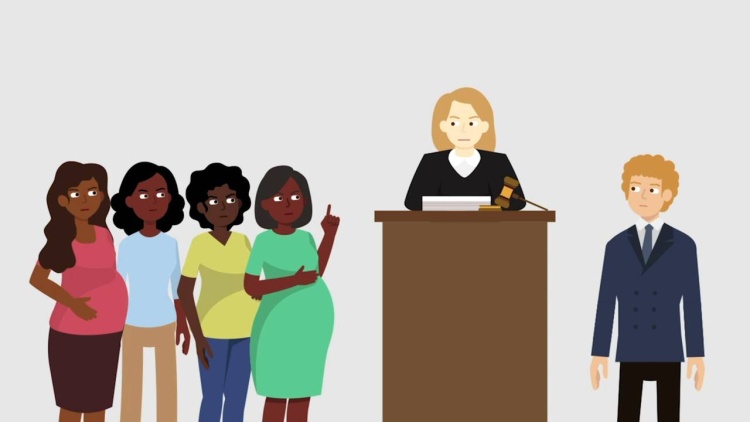Ferguson v. City of Charleston
United States Supreme Court
532 U.S. 67 (2001)
- Written by DeAnna Swearingen, LLM
Facts
In response to an increase in the number of pregnant women using drugs, in 1989 the Medical University of South Carolina (MUSC) instituted a drug-testing policy. MUSC was a public hospital in Charleston. The policy set forth nine criteria to identify pregnant women suspected of using cocaine and required drug screenings be performed on urine samples from those women. The screenings were performed without probable cause or informed consent. Initially, patients who tested positive for drugs were referred to drug counseling and treatment. Later, MUSC began working with police to prosecute patients who tested positive for drugs. Ten women (plaintiffs) who were arrested after testing positive filed suit against the City of Charleston (defendant), claiming the policy violated the United States Constitution. The district court found that the searches were unreasonable but that the patients had consented to testing. It ruled for the city. The United States Court of Appeals for the Fourth Circuit affirmed, but not on the consent issue. It held that the women had not in fact consented, but that the searches were reasonable under the special-needs exception because protecting the health of mothers and children and reducing medical costs outweighed the minimal invasion of privacy. The United States Supreme Court granted certiorari.
Rule of Law
Issue
Holding and Reasoning (Stevens, J.)
Dissent (Scalia, J.)
What to do next…
Here's why 907,000 law students have relied on our case briefs:
- Written by law professors and practitioners, not other law students. 47,100 briefs, keyed to 996 casebooks. Top-notch customer support.
- The right amount of information, includes the facts, issues, rule of law, holding and reasoning, and any concurrences and dissents.
- Access in your classes, works on your mobile and tablet. Massive library of related video lessons and high quality multiple-choice questions.
- Easy to use, uniform format for every case brief. Written in plain English, not in legalese. Our briefs summarize and simplify; they don’t just repeat the court’s language.





